Probiotics
Vet-Recommended Probiotics for Cats with Digestive Issues | A Guide to Better Gut Health
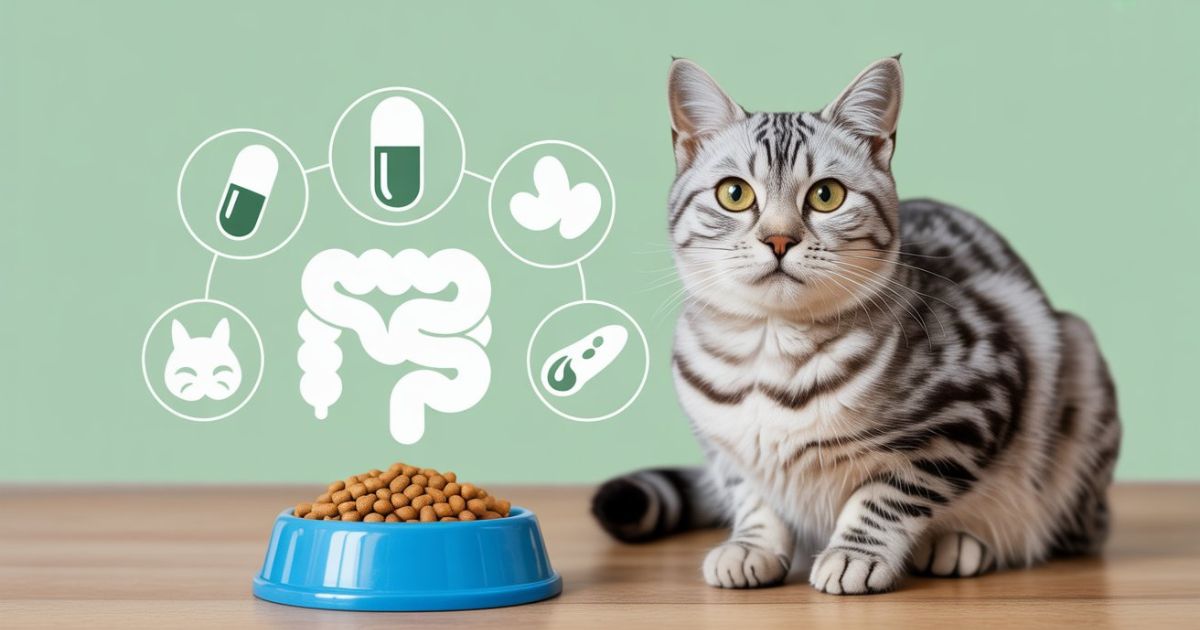
Introduction
Vomiting, bloating, diarrhea, and abdominal discomfort are common issues that cat owners struggle to manage in their pets. Like many other pets, cats often suffer from chronic digestive issues, which can be distressing for both the pets and their owners. While factors like the cat’s diet and environment are important, many veterinarians now recommend probiotic supplements as a safe and effective option for cats with chronic digestive distress.
With probiotics, the gut is usually regarded as the center of the issues. Balanced probiotics will normalize digestion, enhance the absorption of nutrients, and promote overall health. Cats with digestive disorders will benefit from specially designed veterinarian probiotics, and this guide will help you implement effective strategies to maintain a cat’s gut health.
Probiotics For Cats with Digestive Disorders
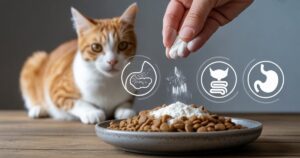
Probiotics are defined as live beneficial microorganisms that help maintain a healthy gut environment. They can be readily found in the digestive tract of cats and help fortify the immune response and suppress harmful pathogens.
Probiotics are essential to:
-
-
Assist in the rehabilitation of intestinal flora that has been modified because of diet or stress.
-
Soothing symptoms, which include diarrhea, intestinal gas, and constipation
-
To improve the efficacy of nutrient absorption
-
Assist sensitive stomach cats in better managing their food.
-
Similar to any healthcare imbalance, probiotics restore order and bring back harmony to the system.
Common Digestive Issues in Cats
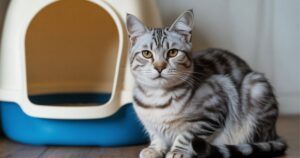
The following are some of the more common stomach and digestive disorders in cats:
-
-
Diarrhea: seen with dietary changes, infections, and stress
-
Constipation: seen with dehydration and low dietary fiber
-
Vomiting – associated with food intolerance or gut disorders
-
Bloating and Gas – Associated with an imbalance in gut flora
-
Sore tummies are not quite as problematic; however, they can still be tiresome. Cats suffering from sensitive tummies might be prone to infrequent vomiting, soft stools, or look uncomfortable post-meal. While not as acute as chronic issues, these too will benefit from probiotics for cats with digestive issues.
How Probiotics Improve Digestive Health in Cats

From a scientific standpoint, probiotics are recommended by veterinarians due to their function in:
-
-
Restoring the Gut Microbiome (“good vs bad bacteria”) equilibrium
-
Enhancing Digestion – probiotics are known to improve enzyme functions as well as nutrient uptake.
-
Reducing Inflammation – Probiotics are effective in aiding Inflammatory Bowel Disease (IBD).
-
Soothing Sensitive Stomach Symptoms – Cats will occasionally suffer from mild stomach upset, but will respond well to probiotic therapy.
-
What are probiotics, and it is nature’s ally that fortifies the gut, not a medication.
Vet Approved Probiotics for Cats with Gastrointestinal Disorders
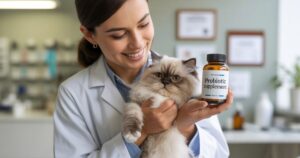
There is great variation between probiotic supplements with respect to their effectiveness and safety. That is the reason practicing veterinarians recommend clinically proven products. Some strains which are known to be safe include:
-
-
Lactobacillus acidophilus – enhances digestion and acts against diarrhea.
-
Enterococcus faecium – frequently found in veterinarian-approved probiotics
-
Bifidobacterium bifidum – assists in better absorption of nutrients.
-
Human probiotics may be too sweetened or dangerous to use in cats, but vet-approved feline probiotics are specially formulated for cats.
Best Types of Probiotics for Cats
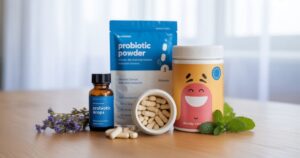
All probiotics may differ in form and conduct, but they have pros and cons:
-
-
Powder – may be added to food, beneficial for picky eaters.
-
Chewable in the form of treats – easy to use, but may have added sugar.
-
Liquid forms – best absorption, but may tend to require refrigeration.
-
Natural such as unsweetened yogurt or kefir but are not always safe for cats that are sensitive to lactose.
-
Considering the condition of the cat, a veterinarian is the best guide on the best type.
When Should You Give Your Cat Probiotics?

Veterinarians will often suggest probiotics for the reasons outlined below:
-
-
For issues relating to the gastrointestinal tract, including, but not limited to, vomiting, diarrhea, and constipation.
-
To assist in the recovery phase after the use of antibiotics to help restore the normal gut flora balance.
-
With regards to cats having known issues with sensitive stomachs;
-
For the treatment and prevention of gastrointestinal disorders, probiotics can be integrated into an individual’s daily dietary habits.
-
Probiotics for cats with digestive issues are generally safe throughout the treatment duration; however, extra attention should be given to product and dosage customization for the individual feline patient.
How to Choose the Right Probiotic for Your Cat
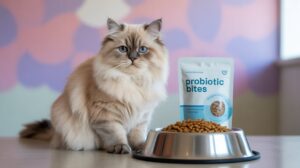
When choosing a probiotic, some key qualities to look for are:
-
-
Approved products by your veterinarian or those that need a prescription.
-
The addition of high CFU (Colony-Forming Units) increases the effectiveness of the probiotic.
-
Additions of multiple strains of probiotics that negate the effects of the original probiotic is a no.
-
Artificial additives are a strict no as they can aggravate the stomach and tear it even further.
-
Probiotics for cats with digestive issues can be a daily staple for cats, and as long as they are created for cats, they can be taken without severe digestive disorders.
Sensitive Stomach In Cats And Probiotics

Both cats and their owners experience sensitive stomachs as exceedingly troublesome. Signs like soft stool, decreased appetite, and vomiting intermittently are observed by the owners. These cats experience great difficulty with diet changes and require extensive gastrointestinal support.
In the following ways, probiotics for cats with digestive issues are extremely helpful:
-
-
Eases the issue of bloating and decreases gas.
-
Aids in the digestion of foods.
-
Diet shifts become less challenging.
-
Overall improves the consistency of stools.
-
Even in the absence of severe digestive disorders, probiotics aid in making daily routines much easier and comfortable to perform.
Further Recommendations to Enhance Cat Digestion Health

Aside from probiotics, lifestyle changes that are simple to instigate include:
-
-
Provide a balanced, quality food.
-
Make sure that fresh and clean water is available at all times.
-
Stress management (this can trigger stomach issues)
-
Scheduled veterinarian visits
-
Alongside proper supervision and a well-planned feeding schedule, probiotics for cats with digestive issues synergistically work together to achieve the best results for cats with gastrointestinal issues.
Final Thoughts
Cats, like any other pet, can have digestive issues, but they do not have to be a burden to your pet’s life. Probiotics for cats with digestive issues suggested for felines with gut issues can help restore balance, alleviate gastrointestinal problems, and enhance overall well-being.
A well-designed diet in conjunction with an effective probiotic can help alleviate discomfort for cats suffering from chronic digestive problems. Always seek veterinary advice prior to initiating any diet modification.
Commonly asked questions
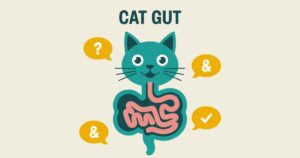
1. What is the most effective probiotic type for cats suffering from digestive complaints?
It is best to use recommended probiotics with Lactobacillus and Enterococcus strains.
2. Probiotics could assist cats with sensitive stomachs; is that correct?
Indeed. The use of probiotics improves soft stools and vomiting, which simplifies digestion.
3. Can cats use human probiotics?
No, use only probiotics made specifically for cats.
4. What is the time frame for the effectiveness of probiotics on cats?
Most cats show improvement after the 5-7 day mark.
5. Do kittens have probiotics?
They do exist, but must be prescribed by a veterinarian.
6. Is daily supplementation advisable?
Maintaining proper gut health is garnered through the optimal use of probiotics over time; thus, the daily consumption of probiotics is recommended.
7. Are there probiotics in foods that are naturally occurring for cats?
Children can be given yogurt and kefir, and while these foods are beneficial, they are better reserved as dietary supplements for the safety of children.

Probiotics
Natural Sources of Probiotics for Cats — Safe Homemade Options & How to Use Them
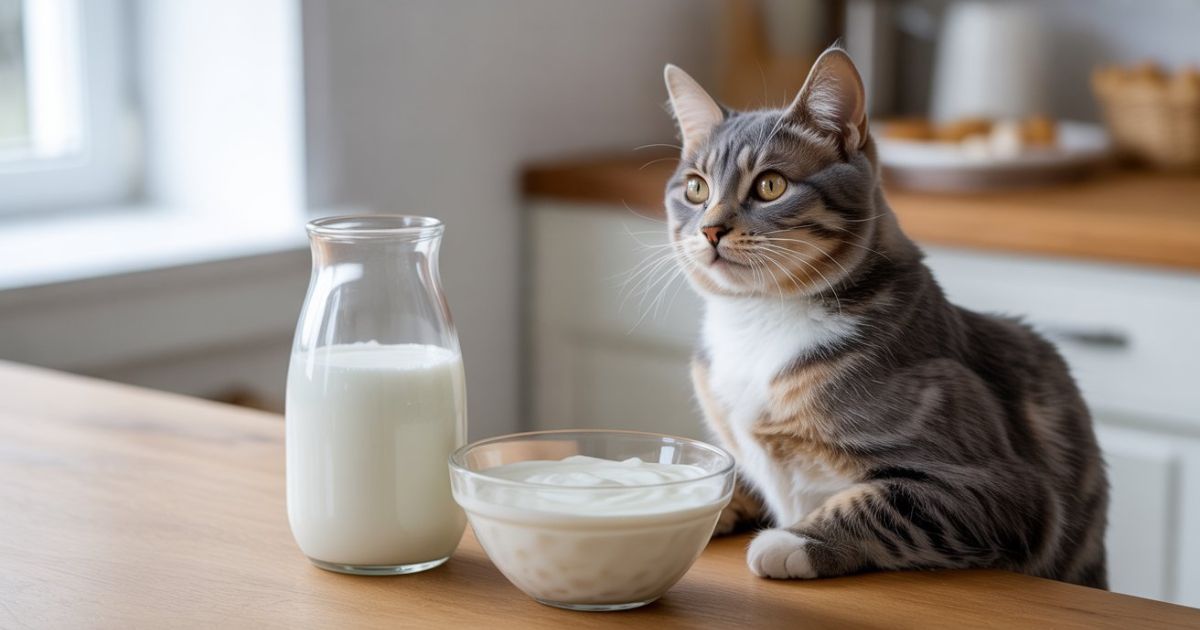
Introduction
Ownership of cats has transitioned over the years. Many pet owners are now concerned with the step of gut bacteria. The reason for the interest in these for cats outside of the normal supplements is due to the fact that they are effective and relatively easy to acquire and make for the owners and their cats.
We will look at the benefits of probiotics on cats, the various types of probiotics and how they can be acquired, and then the methods of herb preparations that are safer to be used on gentle cats and cats with IBD.
What Are Probiotics for Cats
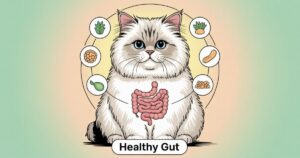
Probiotics are good bacteria essential for the body’s metabolic processes. In cats, the useful bacteria assist in:
Benefits of Probiotics for Cats
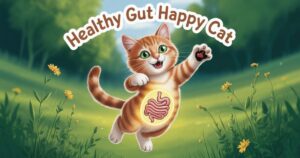
-
-
Improved digestion and assimilation of nutrients
-
Enhanced body immunity
-
Lowered instances of diarrhea and constipation
-
Lessens the strain from stress on the digestive system
-
With probiotics, the body’s functions are gently persuasive and not through force as with medications. Many cat owners still find probiotics for cats, regardless of their source, to be gentle.
Why Choose Natural Sources of Probiotics for Cats?

Pet probiotics are commercially manufactured and easily accessible, but more often than not, they come at a premium, lack their nutrients, are overly processed, or vary significantly in their grade. Natural sources of probiotics, by contrast, offer a more appealing set of benefits:
-
-
It can be designed and adapted in a safe, do-it-yourself format.
-
Lower probability of excessive additives, fillers, or by-products.
-
Lower cost, and most households are likely to have these ingredients on hand.
-
It can be used slowly to help prevent digestive upset.
-
Natural sources of probiotics for cats are in line with the more holistic, health-oriented lifestyle many pet owners aspire to achieve.
Natural Sources of Probiotics for Cats — Complete List
Yogurt (Plain, Unsweetened)
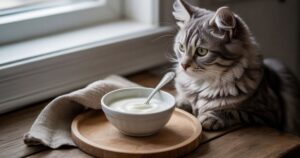
Yogurt contains cultures that assist in maintaining the gut microbiome. Be sure to select the kind that has no flavor, no sweeteners, and no synthetic adjuncts. Pay attention to the dose; start with one small teaspoon and check for tolerance.
Kefir
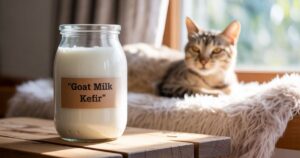
Kefir is a form of fermented milk and a more robust form of yogurt, in that it holds more probiotic strains. Goat milk kefir is especially gentle on cats. A fair number of cat owners have endorsed the hypothesis that kefir, when used in appropriate quantities, accelerates the smoothing process of digestion.
Fermented Vegetables (Tiny Portions)
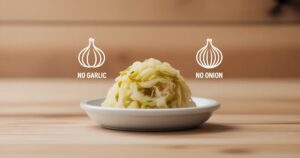
Fermented vegetables with few restrictions, such as sauerkraut or kimchi, may provide sources of probiotics as long as no garlic, onion, or a few heavy spices are included. That said, they should only be consumed in very small amounts and only if made with no preservatives.
Goat’s Milk
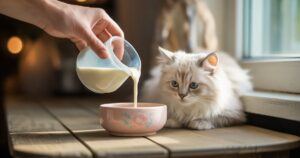
Goat’s milk, lightly fermented or raw alike, is yet another natural probiotic source, albeit far easier for cats to digest than cow’s milk, tendering moisture, beneficial probiotics, and even aiding the natural stomach processes’ hydration.
Natural Culture-Based Supplements

Some fermented and culture-based supplements fall within the hybrid natural and commercial framework, and work well for cats who do not tolerate dairy.
Safe Homemade Options for Cats
Probiotics made at home can offer natural gut support in a safe way.
-
-
DIY Yogurt Drops: Take small amounts of plain yogurt and freeze them in bite-sized portions.
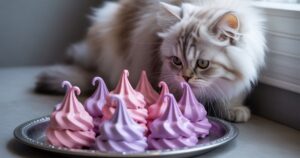
-
Homemade Kefir Mix: Add a teaspoon of kefir to your cat’s food once or twice weekly.
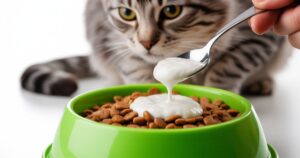
-
Fermentation at Home: Gentle vegetable fermentation can provide probiotics.

-
The less is more approach is wise– cats are sensitive both physiologically and in terms of their delicate digestive systems.
Natural Probiotics for Cats with IBD and Sensitive Stomachs
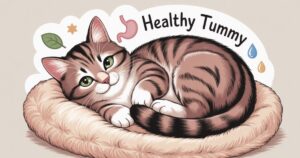
Cats with sensitive stomachs and IBD need special attention. Natural probiotics can IBD include:
-
-
Enhancing the gut lining inflammation profile positively.
-
Improving absorption of gut nutrients.
-
Improving stool consistency.
-
Home-prepared options such as goat’s milk kefir, while still non-conventional, serve the purpose better than anything processed. For cats needing more complex diets, no changes should be made without consulting a veterinarian.
How to Use Natural Sources of Probiotics for Cats Safely
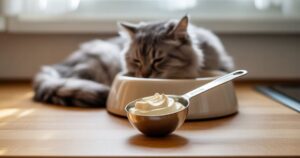
Vets agree that probiotics are best administered in small amounts to avoid any complications.
-
-
Start with 1/2 tsp of yogurt or kefir. Offer more than 2-3 times per week.
-
Monitor your cat’s behavior and look for stool changes. Less gas, better appetite.
-
Stop giving your cat the treatment if vomiting or diarrhea worsens, and consult your vet.
-
Apart from modestly sized, consistent doses, giving probiotic treatment for intensive relief for systemically flushed cats won’t yield favorable outcomes.
Common Mistakes
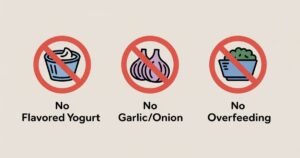
-
-
Using yogurt that has been flavored or sweetened.
-
Feeding the cat garlic or any onion- fermented foods.
-
Overfeeding probiotics can cause diarrhea.
-
Ignoring or disregarding any signs of lactose intolerance.
-
When to Schedule a Vet Appointment
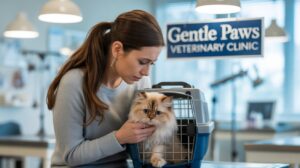
Natural probiotics should not be expected to solve every problem. Any combination of the following symptoms should be brought to a veterinarian:
-
-
Chronic diarrhea with or without vomiting
-
Any period of voluntary or involuntary weight loss
-
Reduced appetite or sleeping a lot more than normal
-
No progress following the use of probiotics for a few weeks
-
Probiotics from a vet would be more appropriate than continuing with natural sources in those cases.
Final Remarks

Probiotics are essential for maintaining the digestive health of a cat. For feeding cats probiotics with natural sources, safe homemade remedies include yogurt, kefir, goat’s milk, and fermentation of certain foods and liquids. These not only assist in restoring the imbalanced gut but also enhance the overall wellness of the cat.
Natural probiotics could be beneficial for IBD cats and sensitive cats with stomach issues, although this is not the case for every single cat. It is better to start with lower doses, but even more important is the need to remain constant with one’s routine. It will be easy to see in the long run what works and what does not regarding keeping the cat’s emotional and physical health in balance.
-
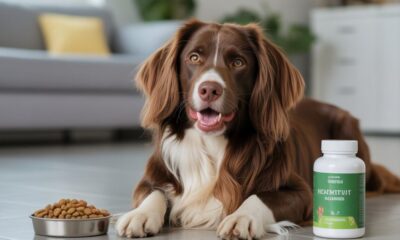
 Enzyme Support5 months ago
Enzyme Support5 months agoHow to Improve Your Dog Digestive Health with Enzyme Supplements | Complete Guide
-

 Enzyme Support6 months ago
Enzyme Support6 months agoBest Digestive Enzymes for Dogs: Vet-Recommended for Digestion & Gut Health
-
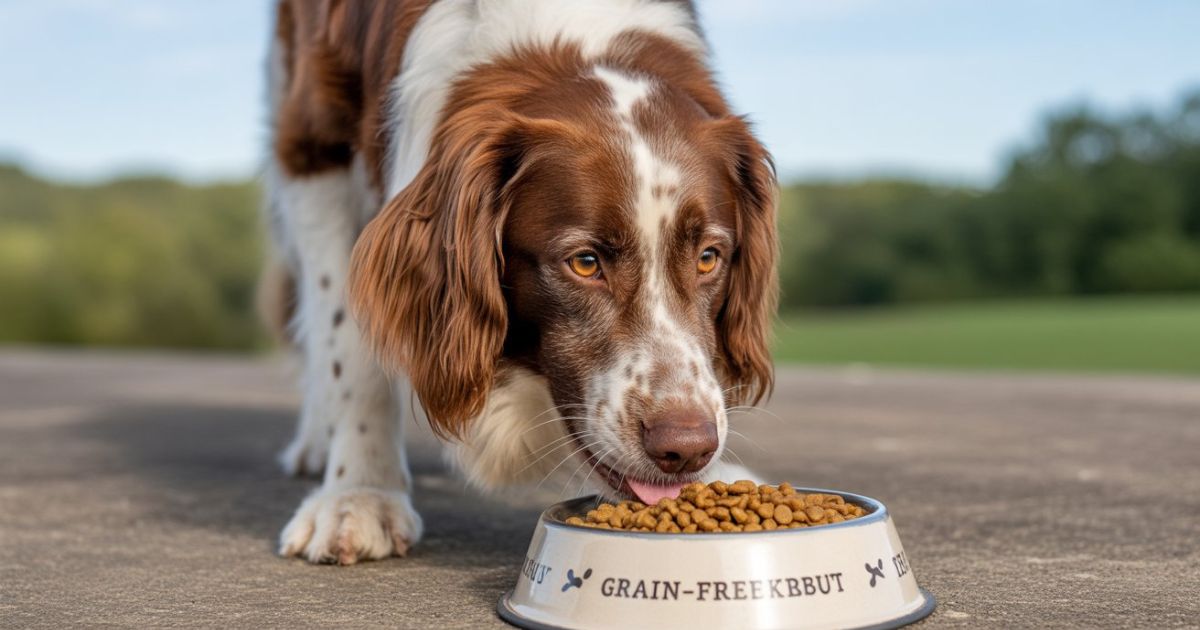
 Grain-Free vs Grain6 months ago
Grain-Free vs Grain6 months agoGrain-Free Diet for Allergic Dogs: Key Benefits Every Dog Owner Should Know
-
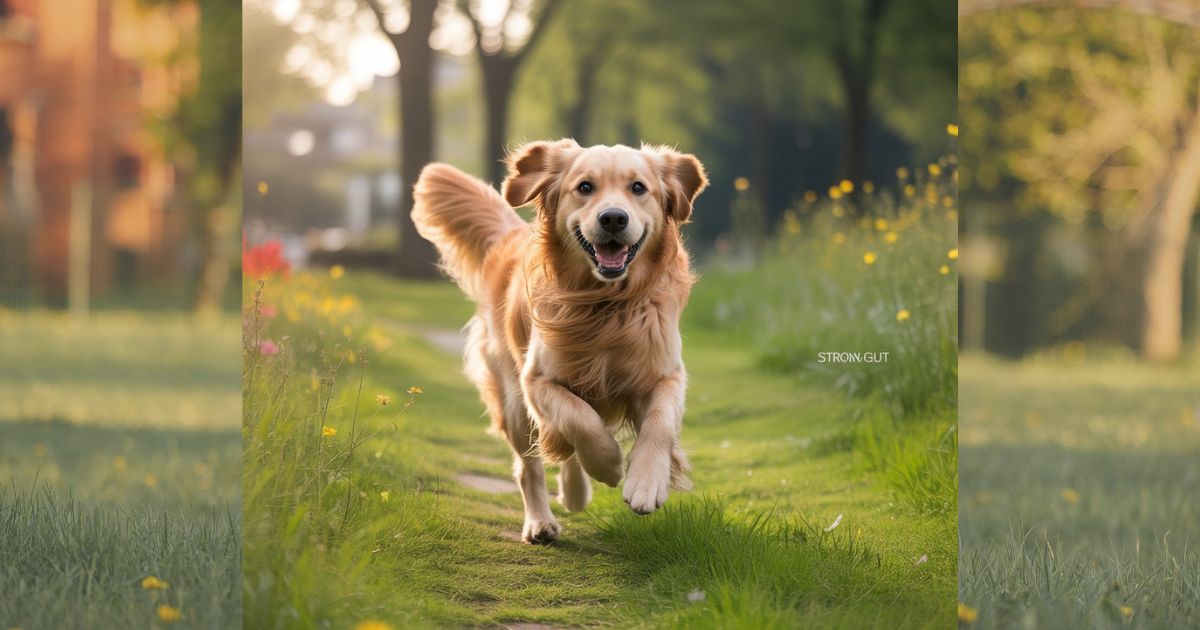
 Probiotics6 months ago
Probiotics6 months agoBoost Your Dog Gut Health Naturally: How Probiotics Work Wonders
-
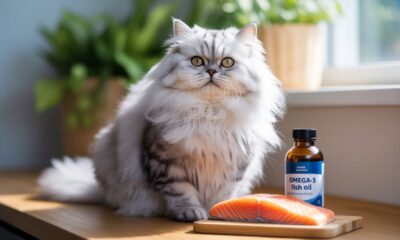
 Cat Health5 months ago
Cat Health5 months agoBest Fish Oil Supplements for Cats — Vet Picks Made Easy with Omega-3 Benefits
-
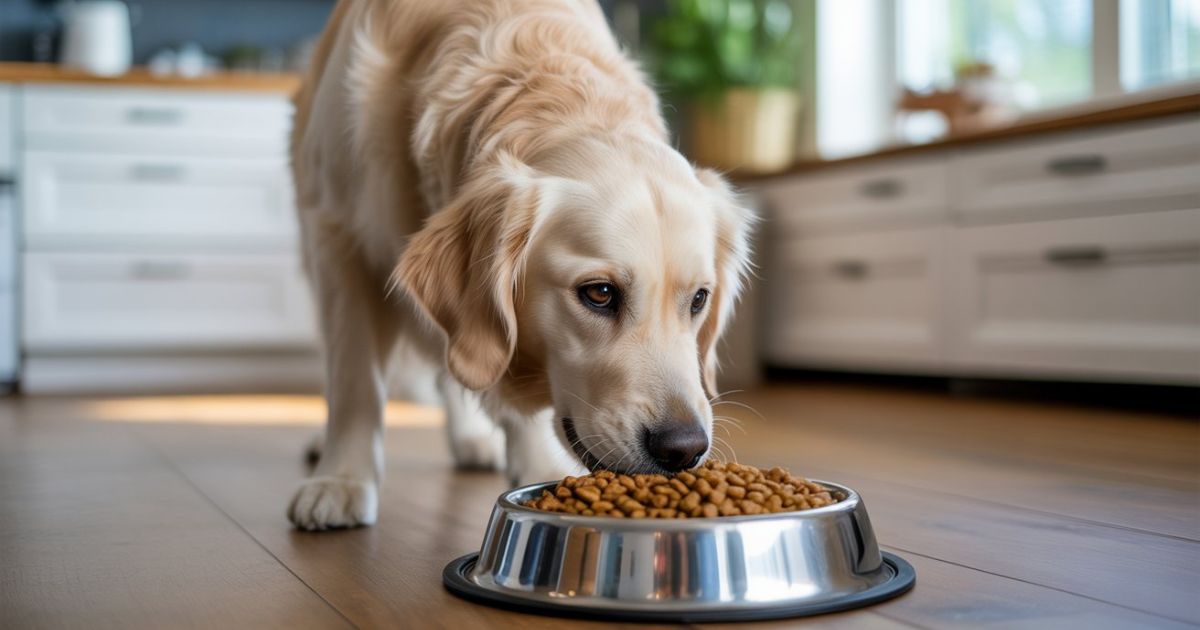
 Grain-Free vs Grain6 months ago
Grain-Free vs Grain6 months agoGrain-Free Dog Food-Good or Bad? The Essential Guide for Pet Owners
-
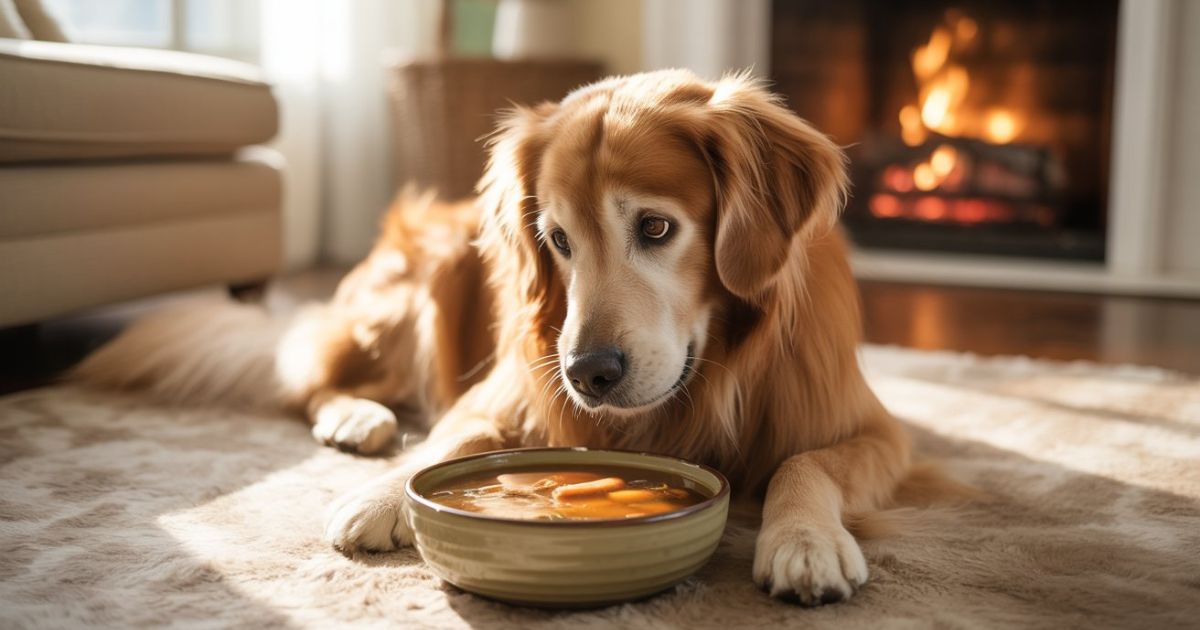
 Bone Broth6 months ago
Bone Broth6 months agoBone Broth for Senior Dogs – Boost Joint Health and Mobility Naturally
-
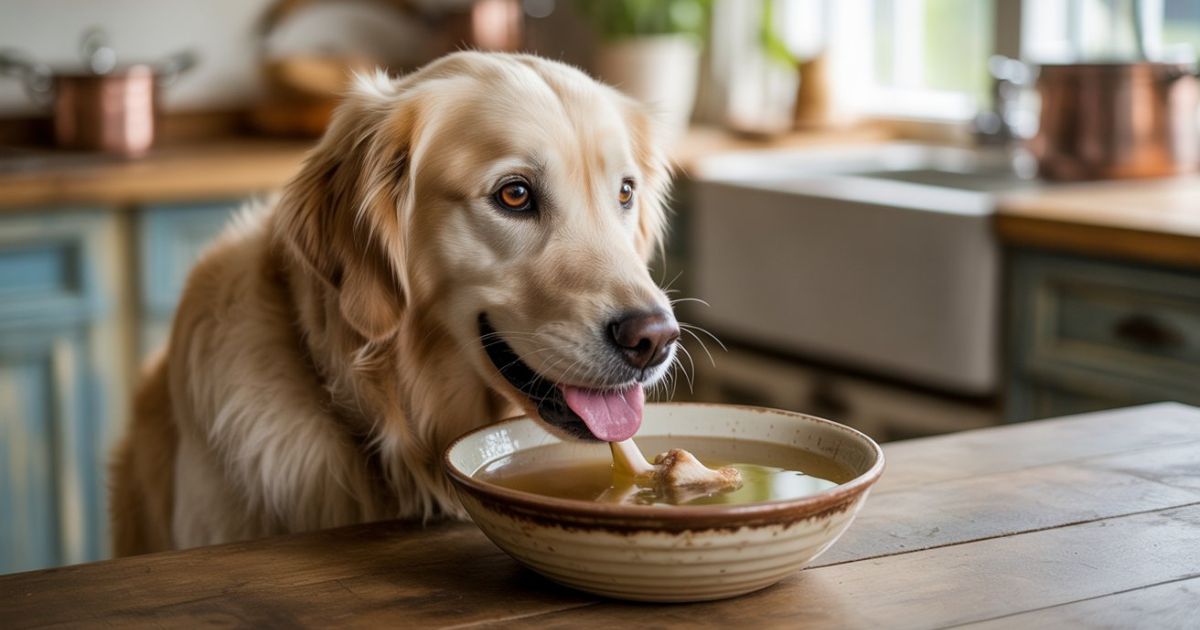
 Bone Broth6 months ago
Bone Broth6 months agoBest Bone Broth Recipe for Dogs with Sensitive Stomachs—Gentle & Homemade



